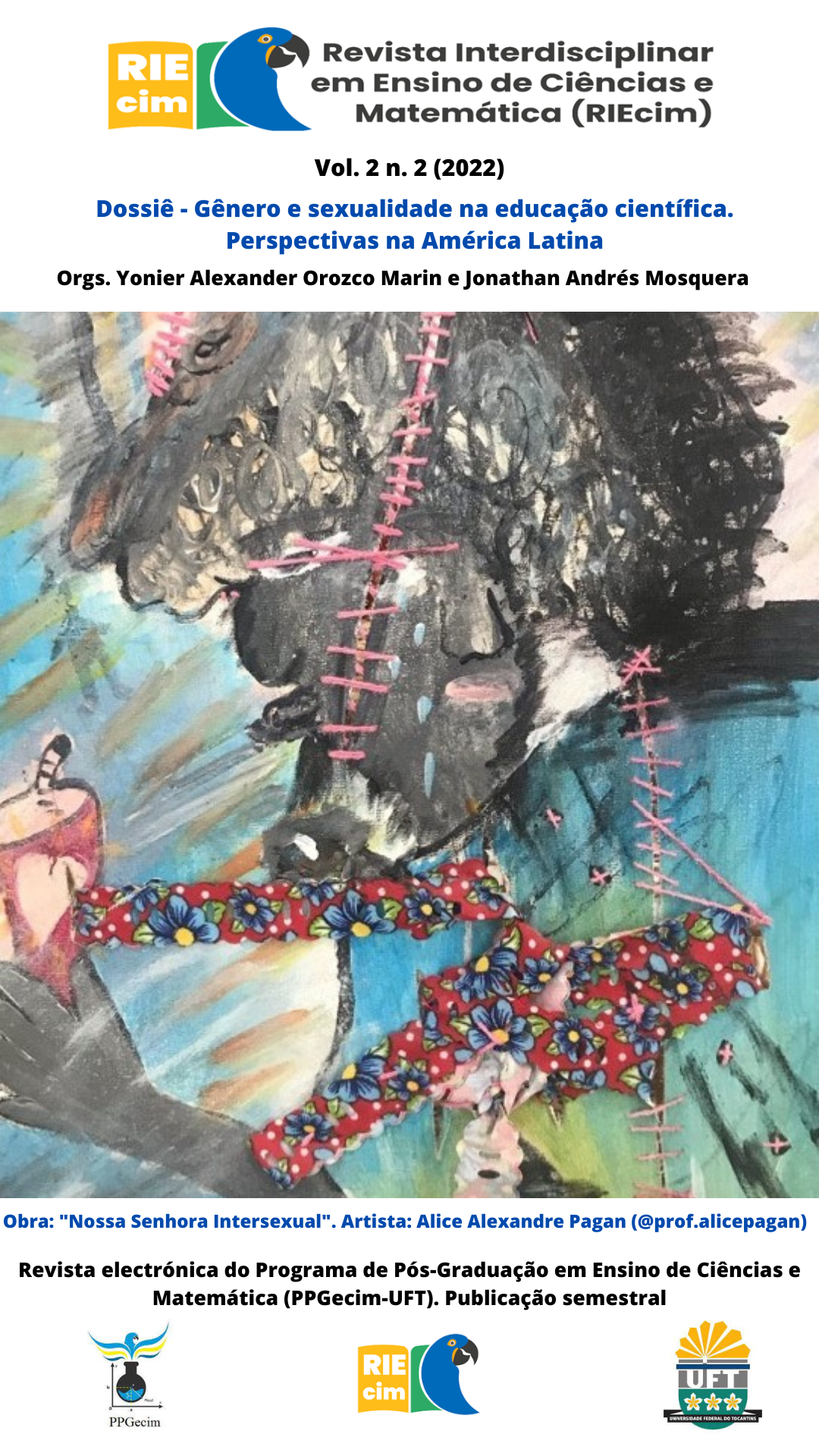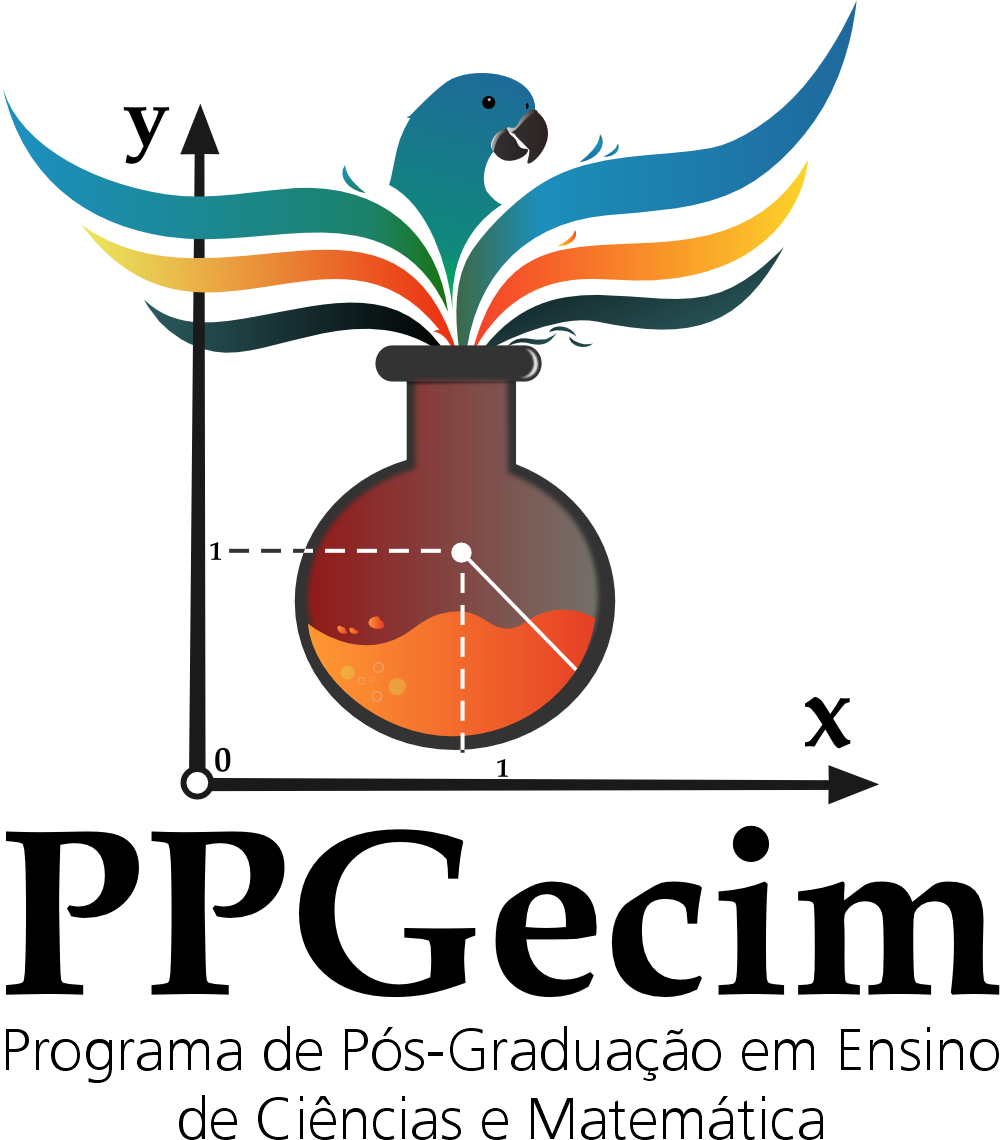SEXUALIDAD, EJERCICIOS DE CONTROL Y CAMBIOS A IMPLEMENTAR EN LA ESCUELA; CULTURA, GÉNERO Y CURRICULO
CULTURA, GÉNERO Y CURRICULO
DOI:
https://doi.org/10.20873/riecim.v2i2.14873Keywords:
Sex education, Standardization, Gender, CurriculumAbstract
This reflection aims to provide elements to the current debate on sexuality and sexual education. Three nuclei are developed: 1) Normalization, exerted on sexuality, 2) Gender understood as a cultural construction, 3) Currents that guide the E.S. Some considerations are presented on the way in which E.S can reduce dynamics of exclusion and violence against minority groups, from proposals such as E.S linked to rights, gender, and diversity, Queer Curriculum, and Approach of the matrix of rights and integrality. It is concluded that the E.S should not be reduced to occasional spaces, since sexuality is fundamental in the formation of the subject. In addition, the need to reformulate it is exposed, questioning the dynamics of the invisibility of otherness.
References
ABERO, Beatriz; PÉREZ DE SIERRA, Isabel; QUESADA, Solana. Sexualidad y derechos. Aportes para el trabajo con adolescentes y jóvenes. Ed. MIDES INJU, 2015. 76p
BOGGIO, Ariela; SERRANO IBARRA, MARIELA, A; VENIALGO, Andrea y VICTORES, Amparo. Trabajo de investigación en una escuela privada católica en el nivel primario y su vinculación con el programa nacional de educación sexual integral. In: XIII Congreso internacional de investigación y práctica profesional en psicología. XXVIII jornadas de investigación. XVII encuentro de investigadores en psicología del mercosur. Iii encuentro de investigación de terapia ocupacional. III encuentro de musicoterapia. Facultad de Psicología - Universidad de Buenos Aires, Buenos Aires. 2021 p. 36-40.
BOLIN, Anne. La transversalidad de género. Contexto cultural y prácticas de género. Antropología de la sexualidad y diversidad cultural, p. 231-260. 2003
BRAUNSTEIN, Nestor. Como se constituye una Ciencia. Psicología: Ideología y ciencia , n. 8, pág. 7–20, 1982.
CARVAJAL, Germán La lógica del concepto de pedagogía. Revista Iberoamericana de educación. v. 39, n. 4, pág. 1–11, 2006.
DIAZ BARRIGA, Frida. Comprender la teoría del currículum como una conversación complicada: surgimiento, crisis, reconceptualización e internacionalización. Revista mexicana de investigación educativa, v. 21, p. 641–646, 2016.
ESCUDERO LEDESMA, Irene. La educación como espacio de resistencia. Una propuesta desde las Artes y la Educación Social asentada en la pedagogía queer (pedagoqueer). interalia: a journal of queer studies, v. 12 p. 40-52, 2017.
FOUCAULT, Michel. Historia de la sexualidad 1. La voluntad de saber. Madrid, España: Siglo XXI Editores, 1998.
HERNÁNDEZ ALBARRÁN, Lilia.; PEÑA SÁNCHEZ, Edith. Y. El construccionismo social y la antropología de la sexualidad. Revista de Estudios de Antropología Sexual, [S. l.], v. 1, n. 3, p. 155–174, 2011.
LOPES LOURO, Guacira. Currículo, género y sexualidad. Lo “normal”, lo “diferente” y lo “excéntrico”. Descentrada, v. 3, n. 1, p. 1–7, 2018.
LUCIO, Ricardo. Educación y pedagogía, enseñanza y didáctica: diferencias y relaciones. Revista de la Universidad de la Salle, v. 17, p. 35–46, 1989.
MUÑOZ GAÑAN, Gicela, LÓPEZ BRAVO, Dayan y RINCÓN PRÉSIGA, Ángela. Aplicación del enfoque decolonial y de equidad de género en instituciones de educación básica y media alternativa en Colombia*. Cadernos Pagu [online], n. 62, p. 1-15, 2021
OROZCO MARÍN, Yonier. ¿Pedagogías queer o pedagogías DeCUlonial? Por prácticas escolares también antirracistas, anticapitalistas y desde/con/para los cuerpos sur - Queer. Revista de Educación, v. 18, p. 85-113, 2019
PILAS, Jimena; PERALTA, Lucio. Educación Sexual Integral. Implementación, tensiones y desafíos. Plurentes. Artes y Letras, [S. l.], n. 10, 2019.
SACRISTÁN, José Gimeno. ¿Qué significa el currículum?(adelanto). Sinéctica, v. 34, p. 11 43, 2010.
SÁNCHEZ TORREJÓN, Begoña; ESCRIBANO VERDE, María; ÁLVAREZ BALBUENA, Ana. Formación inicial del profesorado y diversidad sexo-genérica: hacia una escuela queer. RELIES: Revista del Laboratorio Iberoamericano para el Estudio Sociohistórico de las Sexualidades, v. 7, p. 19-33, 30 jun. 2022.
TIUSABA, Alejandro. Prevenir y educar: sobre la historia de la educación sexual en Colombia. Praxis & Saber, v. 8, n. 17, pág. 85–101, 2017.
TORRES, Adiela; PALACIOS, Maria; CARREÑO, Oscar. Política pública en educación sexual en Colombia durante el periodo 1991-2014 . Bogotá: Universidad La Gran Colombia, 2016.
TRÖHLER, Daniel. LA HISTORIA DEL CURRÍCULUM COMO CAMINO REAL A LA INVESTIGACIÓN EDUCATIVA INTERNACIONAL. HISTORIA, PERSPECTIVAS, BENEFICIOS Y DIFICULTADES. Revista Curriculum y Formación de Profesorado (Granada) , v. 21, n. 1, pág. 202–232, 2017.
VASQUEZ, Laura. Educación y género. Una aproximación al currículo oculto de género. II JORNADAS PEDAGÓGICAS DE LA PERSONA. IDENTIDAD PERSONAL Y EDUCACIÓN. Kronos, Sevilla, p. 71–75, 2002.
VÁZQUEZ, Emma ¿Es la “superestructura” un factor determinante en la conformación del género y otras dinámicas sociales? El caso campaniforme. EN: ARQUEOLOGÍA PARA EL SIGLO XXI: ACTAS DE LAS V JORNADAS DE JÓVENES EN INVESTIGACIÓN ARQUEOLÓGICA . Santiago de Compostela: [sn]. pags. 151–156. 2013
VILLA-DÍAZ, Mario. ¿Qué es eso que se llama pedagogía? Pedagogía y Saberes, v. 50, pág. 11–28, 2019.
ZEMAITIS, Santiago. Pedagogías de la sexualidad. Antecedentes, conceptos e historia en el campo de la educación sexual de la juventud. Argentina: Universidad Nacional de La Plata., 2016.
Downloads
Published
How to Cite
Issue
Section
License
Copyright (c) 2022 Christian Rios Avella

This work is licensed under a Creative Commons Attribution-NonCommercial 4.0 International License.
Copyright Policy
Copyrights are retained by the authors, who grant RIEcim the exclusive rights for first publication. Authors will not be remunerated for the publication of their work in this journal. Authors are permitted to enter into separate, additional contractual arrangements for the non-exclusive distribution of the work's published version in this journal (e.g., post it to an institutional repository, on a personal website, publish a translation, or as a book chapter), with acknowledgement of authorship and initial publication in this journal. The Journal's editors have the right to make textual adjustments and adaptations to conform to publication standards.
Open Access Policy
This journal provides immediate open access to its content, following the principle that freely providing scientific knowledge to the public contributes to the global democratization of knowledge. Users can read, download, copy, distribute, print, search, or use the content for any legal purpose, respecting national copyright laws and without seeking prior permission from the publisher or the author. The opinions presented in the articles are the responsibility of the authors. The Journal does not charge Article Processing Charges (APCs).
Licensing Policy - Usage License
Licensed under the Creative Commons Attribution-NonCommercial 4.0 International (CC BY-NC 4.0) License. This license allows sharing, copying, redistributing the manuscripts published in RIEcim in any medium or format. Additionally, it allows adapting, remixing, transforming, and building upon the material, as long as proper credit is given to the author and initial publication in this journal is acknowledged.

































